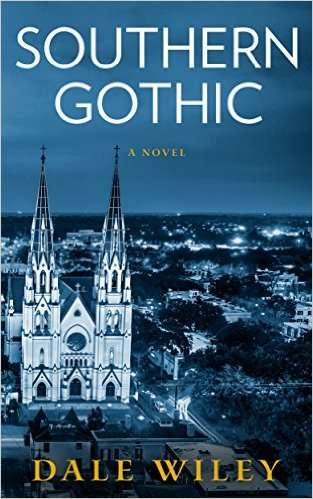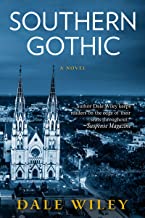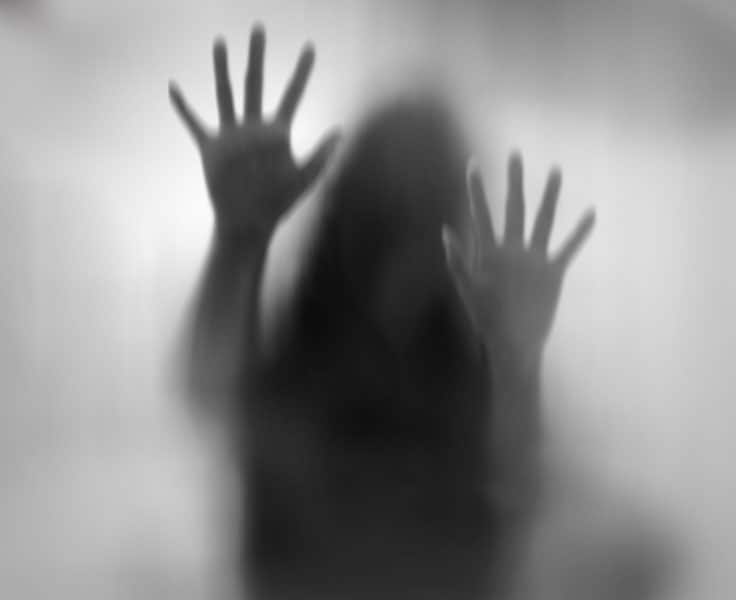Southern Gothic by Dale Wiley
Southern Gothic by Dale Wiley (Vesuvian Media) is on sale now and if we’re being honest, it’s a pretty interesting read with an intriguing plot and an ending that will knock your socks off!
Want to know more about how Wiley came up with the idea for the novel and what Anderson Cooper has to do with the story?! Find out below.
BookTrib: What inspired you to write Southern Gothic?
Dale Wiley: I really didn’t have any ideas jumping out at me, and I just decided to try to write a book I would have loved to read. I loved playing with the novel within a novel, and I loved trying to work within the tradition of a “southern” novel.
BT: Was there anyone specific who you based Meredith Harper off of? What about Michael Black?
DW: Luckily, I didn’t base either character off of any person. Looks-wise, Meredith may resemble my cousin Jennifer, but both of these characters are really flawed. They both become so ego-driven and I’m glad I don’t have to ascribe their bad behavior to anyone in particular!
 BT: Which character in Southern Gothic do you find to be the most compelling?
BT: Which character in Southern Gothic do you find to be the most compelling?
DW: I think their interplay is the most interesting. I think Meredith has kind of blocked off her feelings about what she wanted to do with writing, but she quickly finds out that the glory is what’s attracting her, and not the authentic writing itself. But she doesn’t know what she’s missing (in good ways and bad) until she meets Michael. I think she loves their relationship in more ways than she can explain.
BT: How does the ghost story in the book relate to Anderson Cooper and the Shoals?
DW: I’m almost embarrassed to say it, but it was really late in the writing process when I discovered that my crazy general who lived at The Shoals was actually the great-great-grandfather of CNN’s Anderson Cooper! When you look at the pictures, you can really see it. It made for an interesting discovery, and I wish I had learned about it earlier.
BT: Do you have any movie or television plans in mind for Southern Gothic or your other novels?
DW: I’m talking with a couple of long-time friends who have worked on big-time network TV. In my mind, it’s a five-part mini-series, each two hours long. There’s so much more good stuff going on in terms of all the new outlets, and I think at that length, the show would be a blockbuster.
BT: What do you think was the hardest part about writing Southern Gothic?
DW: I don’t like waiting. I started writing Southern Gothic in the summer of 2015, and now it’s 2017 before it sees the light of day. That drives me crazy. But I have a great team, and it has been a really fun experience. Writing about places you love and a story you get to meld constantly, that’s just a dream to me.
BT: You’ve got a couple other thrillers published already. What draws you to this type of genre over others?
DW: I’ve written three thrillers, but they’re really different. I think they take you in different places and give different experiences. I have a really high threshold for doing things I haven’t seen before, or at least doing it from a different angle. And I just have to have a hook, a story, something to keep the reader on the edge of the seat. That’s probably my personality more than anything.
BT: Who are some of your favorite authors? Do you draw your inspiration from their writing?
DW: My favorites are iconoclasts: Raymond Chandler, Fitzgerald, Camus, journalists like Hunter S. Thompson and Molly Ivins, more contemplative voices like Donald Miller. I love Kinky Friedman. I guess the common thread I see are people telling stories from very distinctive voices.
Some times there are little moments that influence you. When I was in college, I worked for the Assembly Series committee, where we booked a weekly lecture series. Because we did this work, we often got to go eat with the writers. I got to have lunch with Kurt Vonnegut and Joyce Carol Oates and the great Carlos Fuentes.
While I was at lunch with Mr. Fuentes – who I am fully convinced was the inspiration for the commercials about the most interesting man in the world – he was telling us about a trip he had planned with Gabriel Garcia Marquez to go to Cartagena, Columbia to look for first editions of Don Quixote. They had found some document showing that a large number of the book had been shipped there. I said to him, “that sounds like a great novel! The two most famous Spanish-speaking novelists on a journey!” and he waved it off and said to me, “You write it. I don’t want to write it”. I learned something in that discussion about how one person’s idea is only great if they have the vision for it. I think that’s a very important lesson in writing.
BT: How did you start writing? Was it always something you pictured yourself doing?
DW: I don’t remember when I started to write. What I do remember is that I wrote enough when I was super young that my mom took me to our neighbors’ house a couple of doors down. One was a high school English teacher, and the other was a college English professor, to take writing lessons. Funny enough, that couples’ son is now a big-time Hollywood editor.
When I was a kid I wrote magazines and comic books and Amish detective novels and horror stories and tons of bad poetry. I didn’t write as much when I was first raising my kids, but I still wrote a book called There Is a Fountain about the history of camp meetings.
So I guess it’s been there the whole way.
Be sure to pick up a copy of Dale Wiley’s Southern Gothic, on sale now! For more from Wiley, check out our Author Video Chat.
Buy this Book!
Amazon



